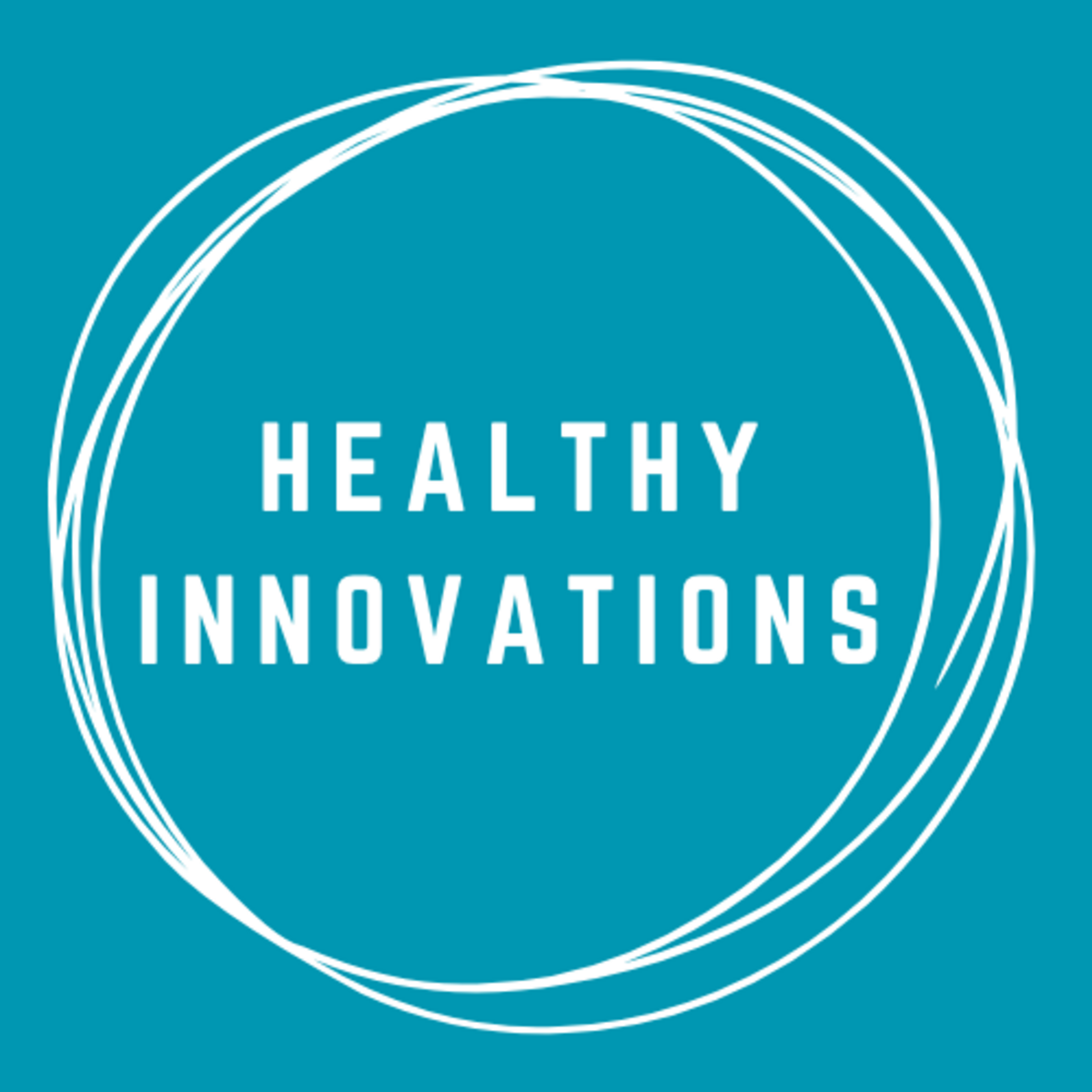Welcome back to Healthy Innovations! 👋
In this issue of Healthy Innovations, I wanted to explore how AI is transforming mental healthcare access - a timely topic as we observe Mental Health Awareness Month in the US and Mental Health Awareness Week in the UK.
Nearly everyone knows someone living with a mental health condition - whether it's depression, anxiety, or PTSD. According to NHS England, one in four adults will experience a diagnosable mental health condition each year, yet fewer than half receive the treatment they need. This widening gap between those needing help and those receiving it creates an urgent need for innovative solutions.
So let's see how AI can make mental healthcare more accessible, personalized, and effective.
Behind every mental health statistic is a real person - someone waiting for therapy, struggling with anxiety, or battling depression without adequate support.
Traditional mental healthcare systems were already stretched thin before the pandemic, and now they're facing unprecedented demand they simply cannot meet.
This is where AI offers something different - not as a replacement for human therapists, but as a critical bridge to provide immediate, personalized, and accessible support when traditional services fall short.
The human cost of mental healthcare gaps
In the UK and US, millions of people are on waiting lists for mental health support, while many others cannot access care due to cost, location, or provider shortages. These aren't just statistics - each represents a person experiencing real suffering, from teenagers with anxiety to workers struggling with depression to older adults facing isolation.
The cost is enormous - both in human suffering and economic impact. The personal toll is even more devastating, with untreated mental health issues leading to worsening physical health, broken relationships, and in worst cases, loss of life.
Next-generation mental health companions
Today's AI mental health solutions offer sophisticated support designed to address specific gaps in care:
Youper, an AI-powered mental health app, uses evidence-based techniques like cognitive behavioral therapy (CBT) for personalized support. The app offers guided conversations, mood tracking, and self-reflection exercises to help manage anxiety, depression, and stress. Stanford University research has validated its effectiveness - over 80% of millions of users report improved well-being from using this privacy-focused, adaptive chatbot.

Cass, a psychologist-developed AI-enabled mental health chatbot, provides round-the-clock support through evidence-based therapeutic approaches like CBT. This clinically proven platform delivers personalized, context-aware conversations that have shown measurable reductions in users' depression and anxiety symptoms.
Earkick combines AI with real-time biometric tracking to deliver personalized mental health interventions. Their wearable monitors physiological signs of stress, while the AI companion offers context-aware coping strategies.
Wysa combines AI self-help with human coaching in a stepped-care approach: users begin with an AI chatbot for immediate support and can connect with licensed therapists when needed.

Condition-specific AI interventions
More targeted solutions are emerging for specific mental health conditions:
NOCD delivers AI-supported exposure and response prevention (ERP) therapy for obsessive-compulsive disorder (OCD). This platform combines self-guided digital exercises with video therapy sessions, making a specialized treatment accessible to people who might otherwise wait months to see an OCD specialist.
Researchers at Dartmouth have developed Therabot, a conversational AI designed specifically for people on treatment waiting lists. A recent study of 106 participants found that patients with depression experienced a 51% average reduction in symptoms, leading to significant clinical improvements in mood and overall well-being. Those with generalized anxiety showed an average 31% reduction in symptoms, with many participants moving from moderate to mild anxiety levels, or dropping below the clinical threshold for diagnosis.
We did not expect that people would almost treat the software like a friend. It says to me that they were actually forming relationships with Therabot.

Neurofit is a neuroscience-based wellness app that uses AI to deliver personalized somatic exercises, daily check-ins, and real-time biometric feedback to help users regulate their nervous system and reduce chronic stress. Active members report an average 54% reduction in stress after just one week, with AI-guided coaching and integration with wearables like Apple Watch for tailored stress management and emotional support.
What's actually working?
The most promising AI mental health tools share several characteristics:
Evidence-based foundations: They incorporate established therapeutic approaches like CBT, acceptance and commitment therapy (ACT), or mindfulness.
Clear scope and limitations: Responsible tools are transparent about what they can and cannot do, with appropriate safety measures for crisis situations.
Ongoing validation: Leading companies conduct and publish research on their platforms' effectiveness.
Human-in-the-loop design: The most effective solutions maintain some level of human oversight or escalation pathways.
Privacy-first approach: Given the sensitive nature of mental health data, robust privacy protections are non-negotiable.
The road ahead: Challenges and opportunities
As promising as these technologies are, significant challenges remain:
Regulatory uncertainty: The regulatory landscape for AI mental health tools remains fragmented, creating both opportunities for innovation and risks for consumers.
Data privacy concerns: Mental health data is exceptionally sensitive. Companies must navigate complex privacy regulations while collecting enough data to improve their algorithms.
Equity and access: While AI tools can theoretically improve access to mental health support, there's a risk of exacerbating existing inequities if they require resources not equally available across populations.
Integration with traditional care: The most effective future isn't standalone AI solutions but integration with traditional care systems, where AI tools provide initial support with seamless escalation to human providers when needed.
One of the most prominent mental health chatbots, Woebot, recently announced it will shut down its signature app on June 30. The AI-powered tool, developed by clinical psychologists used cognitive-behavioral therapy (CBT) principles to provide users with daily conversational support, practical coping strategies, and mood tracking to help manage anxiety, depression, and stress.
🔮 Looking ahead
In the next 3 years, expect more clinically validated tools with specific therapeutic focuses and increased integration with wearables for personalized interventions.
In 5 years, AI tools will likely become standard components of mental healthcare delivery, with clearer regulatory frameworks and improved natural language processing capabilities.
Within a decade, truly personalized mental health AI could emerge - systems that adapt not just to symptoms but to personality, communication style, and therapeutic preferences, potentially identifying mental health risks before symptoms appear.
A balanced perspective
AI cannot replace the empathy, intuition, and human connection that are fundamental to therapeutic relationships. What it can provide is a valuable bridge - support when nothing else is available, a stepping stone to human care, or a complement to traditional therapy.
The key question isn't whether AI can perfectly replicate human therapy - it's whether it can help reduce suffering for those who would otherwise receive no care at all. For many people, early evidence suggests it can make a meaningful difference.
What are your thoughts on AI in mental healthcare? Would you consider using such tools as part of your health journey?
Innovation highlights
🏠 Cervical Check Breakthrough. Teal Health received FDA approval for the first at-home cervical cancer screening test. Unlike traditional pap smears that use speculums, their "Teal Wand" only requires a simple vaginal swab with a sponge-like tool. This less invasive option could help reach the 23% of people behind on screenings, particularly in rural areas where cervical cancer rates are 25% higher.
🕵🏼 Cell Death Detectives. Australian researchers have discovered how to block a "cell-killer" protein called BAX that causes brain cell death in conditions like Parkinson's and Alzheimer's. After screening 100,000 compounds, the WEHI team identified a small molecule that prevents BAX from damaging mitochondria - potentially stopping neurodegeneration. This breakthrough could lead to game-changing treatments for degenerative conditions that currently have no cure or way to halt progression.
👵🏼 Game On, Grandma! Good news for older adults seeking fun in their fitness routine! Japanese researchers have created "Boccia XR," a space-saving virtual version of the popular Paralympic ball game that delivers impressive results. In their study, seniors reported feeling happier and more energetic after playing the digital game, which also sneakily strengthened their knee muscles better than treadmill walking. Perfect for smaller spaces like nursing homes and hospitals, this virtual therapy combines the joy of gaming with genuine health benefits.

Cool tool
🎾 Longevity in Your Grip. This week's cool tool is a bit different. It's not a digital app, it is a humble tennis ball that doubles as a free biological age assessment! Simply squeeze as hard as you can and time yourself. If you can manage 15 to 30 seconds before your grip fatigues, you’re doing fine. Ninety seconds puts you well above average. Studies show people who maintain a grip for 90+ seconds are 2.5 times more likely to reach 100 years old. While fancy epigenetic tests cost $300+, this simple DIY method takes around a minute and predicts longevity better than blood pressure readings. The science is clear: stronger grip, longer life!
Weird and wonderful
🐍 Venom Volunteer. Tim Friede, a Wisconsin resident, endured 200 deadly snake bites over 20 years for research. His sacrifice led to the discovery of powerful antibodies in his blood that, when combined with medication, protected mice against 19 different snake venoms. This breakthrough could save many of the 120,000 annual snake bite victims worldwide.
"I'm really proud that I can do something in life for humanity, to make a difference for people that are 8,000 miles away."
While traditional antivenom production uses horses or sheep and has limitations, a new approach combining synthetic human antibodies with drugs like varespladib offers broader protection with fewer side effects.

Thank you for reading the Healthy Innovations newsletter!
Keep an eye out for next week’s issue, where I will highlight the healthcare innovations you need to know about.
Have a great week!
Alison ✨
P.S. If you enjoyed reading the Healthy Innovations newsletter, please subscribe so I know the content is valuable to you!
P.P.S. Healthcare is evolving at an unprecedented pace, and your unique insights could be invaluable to others in the field. If you're considering starting your own newsletter to share your expertise and build a community around your healthcare niche, check out beehiiv (affiliate link). There's never been a better time to start sharing your knowledge with the world!



